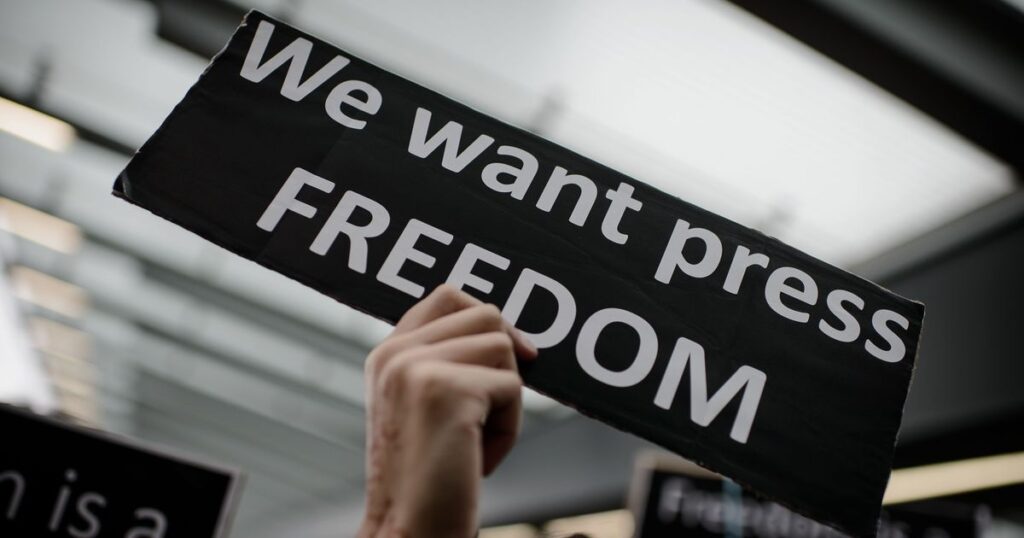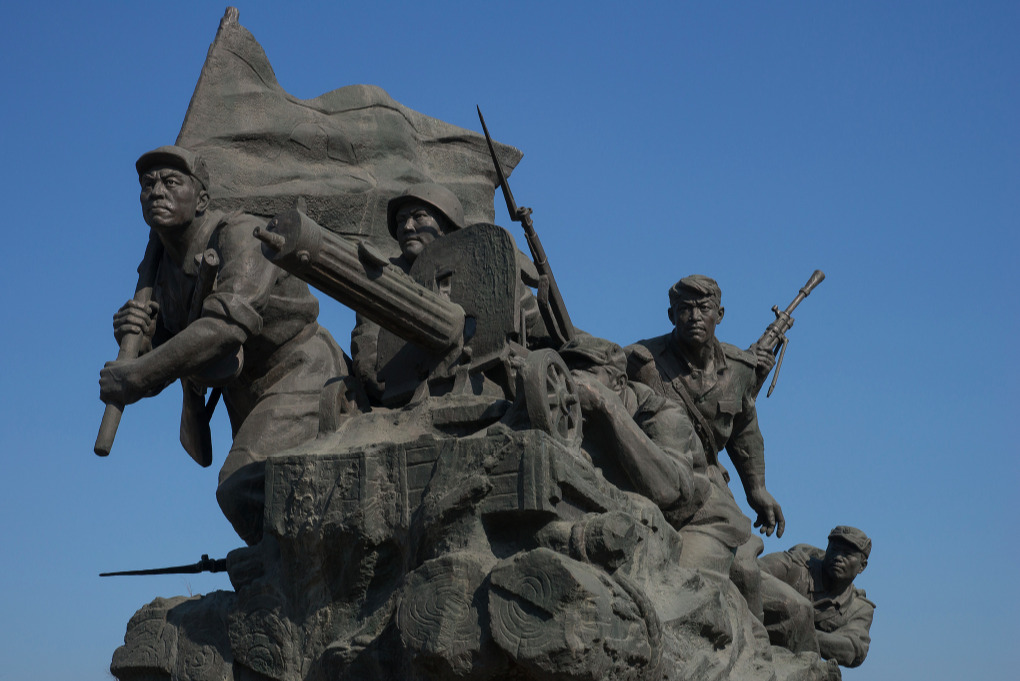In a promising effort to promote press freedom in the United States, Rep. Adam Schiff (D-CA) filed legislation in the U.S. House of Representatives in early February that would bar foreign aid to governments that egregiously violate freedom of the press. The bill, aptly named the “Jamal Khashoggi Press Freedom Accountability Act of 2021” after The Washington Post columnist killed in 2018 by Saudi Crown Prince agents, would also place sanctions on individuals responsible for the violation of journalist rights.
“This legislation… would build upon the Daniel Pearl Freedom of the Press Act to strengthen the United States’ commitment to hold accountable those who would target journalists for violence and persecution,” Rep. Schiff wrote in a press release. “A free and independent media is essential for a free society, and the United States must stand with journalists around the world who risk their lives to expose corruption, express independent and critical voices and tell the difficult stories that must be told.”
The legislation was initially introduced in October 2020, with companion legislation introduced in the Senate by Sen. Amy Klobuchar (D-MN) and Sen. Patrick Leahy (D-VT). In the press release, Sen. Klobuchar discusses the implications of this bill in ensuring that the United States appropriately holds foreign governments accountable for their violations of press freedom. And most recently, Schiff sent a letter to Avril Haines, the Biden administration’s new director of national intelligence, requesting the declassification of reports produced by the intelligence community on the Khashoggi’s murder.
Additionally, a separate bill was introduced in the Senate that directs the U.S. Department of State to establish an ambassador-at-large for press freedom and require civil servants and foreign service officers to receive training on press freedom and media independence issues. “The Global Press Freedom Act” was a bi-partisan Senate effort co-written by Sen. Todd Young (R-IN) and Brian Schatz (D-HI).
These bills mark an important path forward for the issue of press freedom on the congressional agenda. But this year, in particular, has been a pivotal moment for this issue worldwide. With rising authoritarianism and a brutal crackdown on free expression — from Belarus and Russia to Thailand and Hong Kong — the role of journalists and citizen news gatherers is more important than ever. The Committee to Protect Journalists, an American nonprofit dedicated to promoting global press freedom, reported that 32 journalists were killed in 2020 for reporting the news. A December 2020 whitepaper from the International Federation of Journalists documents that since 1990, 2,658 journalists and media workers have been killed.
These bills also come at an important time this year, during a week where international broadcasting is providing a critical look into countries like Myanmar, where a military seizure of power has resulted in international response and a nation in crisis. In Myanmar, the military seized power from the elected government and swiftly implemented a ban on various social media platforms, internet access and TV networks, once again demonstrating that stifled free expression is a tool of suppression and tyranny. Several outlets are also reporting that journalists have “gone into hiding” following the unrest in the country. Sky News reported that journalists have been observing intimidation campaigns and fear targeting and interrogation from the military.
CPJ also recently released a report on press freedom trends in the Middle East and North Africa ten years after the Arab Spring, which brought pro-democracy protests and uprisings to the region in 2011. The report found that across the region, “many countries trace a similar arc;” where uprisings and revolutions called for democratic reform and openness, many of those same countries — including Bahrain, Algeria, Morocco and others, face further government repression. Additionally, civil wars now rage in Syria and Yemen.
CPJ said that the historic upheaval of ten years ago has created “profound, wide ranging and evolving consequences for press freedom, making journalism a deadlier and more dangerous profession,” for both local reporters and foreign correspondents. In particular, the most concerning trends include the increase of jailed journalists, vague online media censorship laws, targeted murders and impunity and a hostile media environment.
Thus, it has become increasingly clear that recognizing the importance of promoting a global free press — especially during a decade of political tumult and international uprisings — is an important step forward in establishing the United States as a leader on this front.
National Press Club President Lisa Nicole Matthews and and NPC Journalism Institute President Angela Greiling Keane praised the legislation’s introduction, writing that they “applauded any effort that would serve justice in cases where journalists are killed or otherwise grossly abused.”
While the legislation establishes mechanisms for accountability and brings press protection into the national spotlight of foreign policy attention, it also fills a void that currently exists in government: a lack of institutional work on the issue. While existing agencies like the U.S. Agency for Global Media and the U.S. Department of State survey the issue of press freedom abroad, there still seems to be very few offices dedicated to the issue’s domestic angle. And in the age of fake news and disinformation, protecting the essential work of journalists throughout the world is more important than ever.
In Congress, other than loose networks of representatives interested in the issue and forming groups like the House Caucus on Freedom of the Press, there is no dedicated commission or office dedicated to media freedom issues. While recent legislation does not propose to establish an advisory committee or body within the House or Senate, it does recognize the lack of institutional focus on the issue at the federal level, and instead proposes that the State Department establish the position of an ambassador-at-large on the issue.
An ambassador to oversee these issues would not only be a symbolic move that demonstrates the United States’ commitment to the issue, but it would also help shape and guide U.S. foreign policy. After all, the United States purports itself as a champion of democracy and freedom of expression — core values enshrined in the country’s founding documents. However, in the past few years, the United States has fallen dramatically short of its values and founding principles. Under President Donald Trump, the White House was a consistently hostile actor toward the press. From barring certain journalists from entering the White House Press Briefings and nearly stopping briefings all together to the president constantly tweeting vicious attacks on the media and failing to condemn violence against members of the press during the insurrection at the Capitol and during the summer’s protests against racial injustice, the United States has strongly positioned itself against the notion that it is a champion of global democracy. This may have historically been the case, but in recent years, American leadership on the issue is nowhere to be found.
However, with forthcoming conversations over newly introduced legislation and the recent arrival of President Joe Biden and a new administration, the United States has the opportunity to return to the world stage, with press freedom at the forefront of its international affairs and human rights agenda.
Syracuse University Associate Professor and Tully Center for Free Speech Director Roy Gutterman wrote in an op-ed for the university that Biden must restore press freedom. Gutterman, an expert on First Amendment law and press freedom issues, wrote that it is Biden’s responsibility to restore the government’s relationship with the media, especially after four years of an administration that portrayed the media as the enemy of the people.
Margaret Sullivan, a media columnist for The Washington Post, wrote in a December op-ed that Biden must take “bold steps” to repair the damage done under Trump. Sullivan calls for a variety of actions the administration should take, including a large and public speech on press freedom and appointing a special presidential envoy on media freedom that would report to the Secretary of State.
Sullivan also aptly notes that Biden should avoid repeating the “bad habits” of the Obama Administration, during which he served as vice president. These habits include opposing the release of public information and cracking down on whistleblowers and government leaks. Sullivan categorizes the Obama administration’s record on press freedom as “deeply flawed,” even going so far as to identify Obama’s actions as having laid the groundwork for the Trump administration’s unprecedented vilification of journalists.
Regardless, it’s clear that press freedom issues are becoming an increasingly important matter at the federal and congressional levels. It’s time for the government to acknowledge that the issue persists at home and in the highest levels of government, while also continuing to monitor the issue abroad. By encouraging cross-sector conversations with media organizations, nonprofits, think tanks and more, the U.S. government can better understand the current media environment. Legislation is an important part of the solution, but increased institutionalized efforts and attention can help restore the United States as a media freedom champion.







